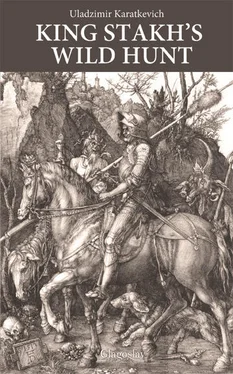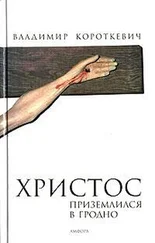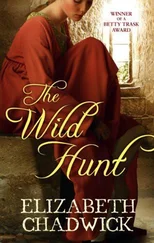He was very sure of himself.
I became angry:
“You can do that, applying force. But I shall find justice against you in the province. You shield the murderers, your police-officer discredited the laws of the Empire saying that you don't intend to engage in an examination of the murder of Śvieciłovič.”
The judge's face became covered with an apoplexic raspberry colour. He stretched his neck as a goose does and hissed:
“And you have witnesses, where are they?”
The solicitor, as a worthy representative of the conciliatory principle of the Russian law-court, smiled bewitchingly:
“Naturally, Mr. Biełarecki has no witnesses. And in general, this is foolishness: the police-officer could not have said that. Mr. Biełarecki simply imagines this. The opponent's word he did not grasp.”
From a tin box he took out some fruit-drops, threw them into his mouth, smacked his lips and added:
“For us of the aristocracy, Mr. Biełarecki's attitude is particularly understandable. We do not want to make you unpleasant. Let yourself leave peaceful from here. Then everything here, how to say, will come right in the end, and we'll hush up the case. So then, good?”
Strictly speaking, that was the cleverest way out for me, but I remembered Janoŭskaja.
“What will happen to her? For her it can end in death or madness. I'll leave, and she, the silly little thing, can be hurt by anybody and everybody, perhaps only not by a lazy fellow.”
I sat on the chair, pressed my lips hard, and hid my fingers between my kness so they shouldn't betray my excited state.
“I will not leave,” I said after a silence, “until you find the criminals who conceal themselves in the form of apparitions. And afterwards I'll disappear from here forever.”
The judge sighed:
“It seems to me that you'll have to leave quicker than we can catch these... miph...”
“Mythical,” the lawyer prompted.
“That's it, mythical criminals. And you'll leave not of your own free will.”
All my blood rushed to my face. I felt my end had come, that they would do with me whatever they wished, but I staked everything, played my last card, for I was fighting for the happiness of her who was dearest to me of all.
With unbelievable strength I stopped the trembling of my fingers, took out from my purse a large sheet of paper and threw it under noses. But my voice broke with fury:
“It seems you have forgotten that I am from the Academy of Sciences, that I am a member of the Imperial Geographic Society. And I promise you that as soon as I am free I shall complain to the Sovereign, and not a stone shall remain of your stinking hole. I think that the Sovereign will not spare the three villains who wish to remove me so that they may commit their dirty deeds.”
For the first and the last time did I name as my friend a person whom I was ashamed to call my country-man even. I had always tried to forget the fact that the ancestors of the Romanovs, Russian tsars, come from Belarus.
And these blockheads did not know that half the members of the Geographic Society would have given much for it not to be called an Imperial one.
But I almost screamed:
“He will intercede! He will defend!”
I think that they began to waver somewhat. The judge again stretched his neck and... nevertheless whispered:
“But will it be pleasant for the Sovereign that a member of such a respected society had dealings with a State criminal? Many honourable landed gentlemen will complain of this to that very Sovereign.”
They had edged me in like borzois, those Russian wolfhounds. I settled myself more comfortably in my seat, crossed my legs, put my hands on my chest and spoke calmly (I was calm, so calm that to drown would have been preferable.)
“And don't you know the local peasants? They are, so to say, sincere monarchists. But I promise you, if you banish me from here, — I shall go to them..”
They grew green.
“I think, however, that affairs won't take such a turn. Here is a paper from the governor himself, in which he orders the local authorities to give me all the support I need. And you know what can happen for insubordination to such an order.”
Thunder at their ears would not have shaken them as did an ordinary sheet of paper with a familiar signature. And I, greatly resembling a general suppressing a mutiny, with teeth set, feeling that my affairs were improving, spoke slowly:
“What's it you want? To be dismissed precipitately from your posts? That's your wish, is it? I shall do that! And for your indulgence towards some wild fanatics performing wild deeds, you shall also answer.”
The judge's eyes began to shift from side to side.
“So then,” I decided, “as well be hanged for a sheep as for a lamb.”
I pointed to the door. The prosecutor and the advocate hurriedly left the room. Clear was the fear in the judge's eyes, the fear of a polecat brought to bay. I saw something else, something secret, wicked. Now I subconsciously felt certain that he was connected with the Wild Hunt, that only my death could save him, that now the Hunt would begin to hunt me, because it was a question of life or death for them, and I would probably even today receive a bullet in my back, but wild anger, fury and hatred gripped at my throat. I understood why our ancestors were called madmen and people said that they continued to fight even after death.
I stepped forward, grabbed the man by the scruff of his neck, dragged him out from behind the table and lifted him up in the air. Shook him.
“Who?” I roared and myself felt how terrible I had become.
It was surprising how correctly he understood my question. And to my surprise, he began to howl.
“Oh! Oh! I don't know, don't know, sir. Oh! What shall I do?! They will kill me, they will!”
“Who?”
“Sir, sir. Your little hands, your little hands I'll kiss, but don't...”
“Who?”
“I don't know. He sent me a letter and 300 roubles in it, demanding that I do away with you because you are interfering. He only said that he was interested in Miss Janoŭskaja, that either her death or his marriage to her would benefit him. And also that he was young and strong, and if it were necessary he would shut up my mouth for me.”
The resemblance of the judge to a weasel became greater because of the stench. I looked at the face of this skunk filled with tears, and although I suspected he knew more than he had told, I pushed him away, disgusted. I could not dirty my hands with this stinking thing. I just couldn't. Otherwise I'd have lost all respect for myself forever.
“You'll answer for this yet,” I threw at him from the door. And it's upon such people that men's fates depend! Poor mužyks!
Riding along the forest road, I was running over in my mind all that had happened. Everything seemed to begin to fit into its place. Of course it was not Dubatoŭk who had created the Hunt, he had nothing to gain, he was not Janoŭskaja's heir, nor was it the housekeeper, nor the insane Kulša. I thought of everybody, even of those whom it was impossible to imagine being involved, but I had become very distrustful. The criminal was young, Janoŭskaja's death or his marriage to her would benefit him. According to Śvieciłovič, this person was present at Janoŭskaja's ball, had some influence on Kulša.
Only two persons fit in: Varona and Bierman. But then, why had Varona behaved so stupidly towards me? Yes, it was Bierman, most likely. He knows history, he could have incited some bandits to commit all those horrors. It's necessary to find out how Janoŭskaja's death could benefit him.
But who are the Little Man and the Lady-in-Blue at Marsh Firs? These questions made my head swim, and all the time one and the same word running in my head.
Читать дальше



